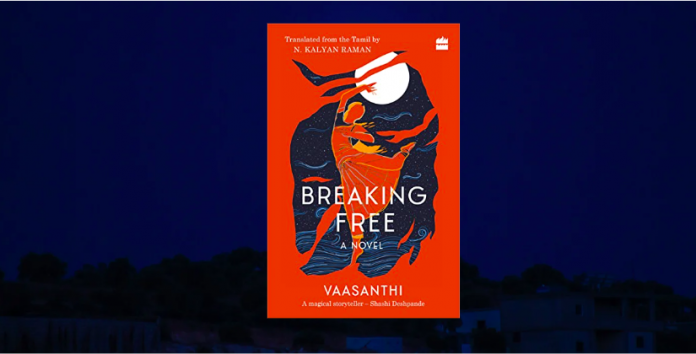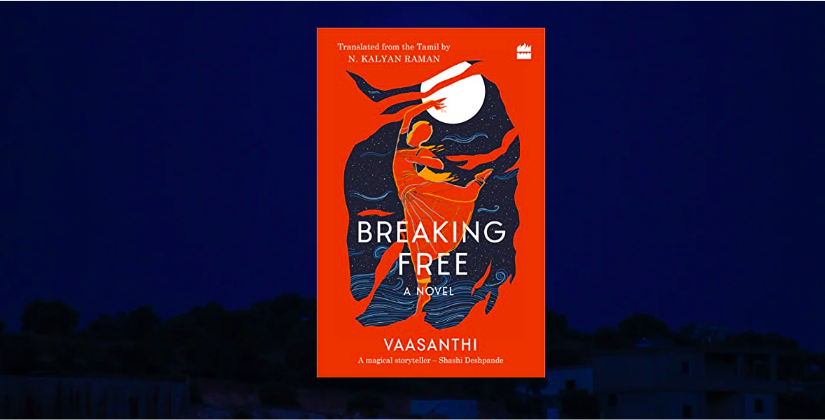Breaking Free: A NoveL
by Vaasanthi, translated by N. Kalyan Raman
Publisher: Harper Perennial (2022)
‘Breaking Free’, translated from the Tamil work “Vittu Viduthalaiyagi” written around a decade ago, vividly chronicles the lives of devadasis – temple artists who were masters of classical dance and music. They were provided with land and grants for their service but with the fall of the temples that supported them, their sustenance came to be dependent upon the patronage of rich men, thus tainting their distinction as talented custodians of the arts and reducing them to prostitutes.
The novel tells the story of Kasturi and Lakshmi from the devadasi clan, tracing the journey from their childhood, learning dance under a dictatorial master, to unfurling the mystery affecting the lives of two successive generations of women in a saga that twists and turns masterfully through time. Kasturi is a gifted dancer who accepts the underpinnings of the devadasi system, including getting married to God and receiving the patronage of the local Raja, believing it to be a mere arrangement. She shrouds the infelicity and unjust nature of the system she’s born into with her devotion towards God and dance. Lakshmi, on the other hand, is overcome with indignation. She decides that she will no longer face the humiliation suffered by her and her mother, the mistress of a wealthy landlord, and manages to convince her father with whom she can’t even acknowledge her relationship publicly to support her study. Thereafter, she becomes the first woman to attend college in Madras Presidency and goes on to make name for herself as a decorated doctor who’d pass a bill in the legislature to abolish the devadasi system. (Her character is loosely based on Dr Muthulakshmi Reddy who passed the Devadasi Abolition Bill in the Madras Legislative Council.)
As the tale unfolds amidst the roaring tempest of India’s freedom movement, Kasturi has to sail the oceans of losing her all to the abolition bill, straining her relationship with Lakshmi while discovering her passionate love towards a lower-caste man which would supposedly make her impure and unfit to dance. She grapples with the fear of being brought to reckoning as the author sheds light on nationalism and the issues of casteism. This was India at the time of the Salt March when Tamilians vehemently protested and sang Subramanya Bharathiyar’s patriotic verses. This was India on the brink of freedom when ironically, the devadasi system was still perpetrated by rich men with a strong foothold on deciding the norms.
The narrative is adeptly interspersed with the present-day account of a young American-educated woman in Kodaikanal who struggles to come to terms with her mother’s death, rumoured to be a suicide by the locals. Through her, the journalist-author Vaasanthi portrays an allegory for social crises deeply rooted in gender injustice – a system tactfully built around resourcefulness that almost blinded the victims to inequity by keeping a tight grip on them. Translated into English by N. Kalyan Raman, ‘Breaking Free’ builds on the motif of a labyrinth, one that begets the urge to sever all ties to the past and a realisation that a legacy shrouded in trauma casts a long shadow, enveloping the lives of all those attached.






RELATED ARTICLESMORE FROM AUTHOR
Can’t
Minor Disturbances at Grand Life Apartments
The Wait: And Other Stories